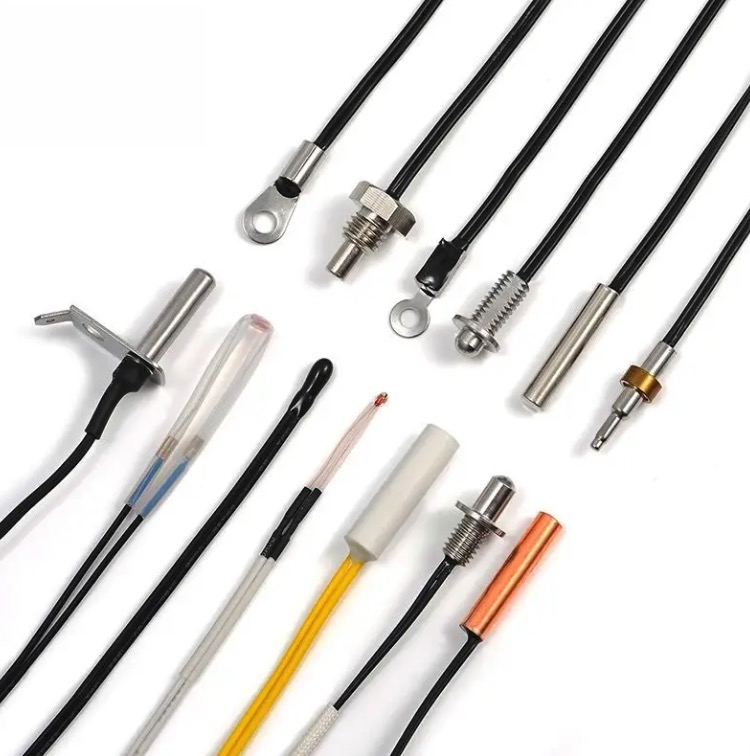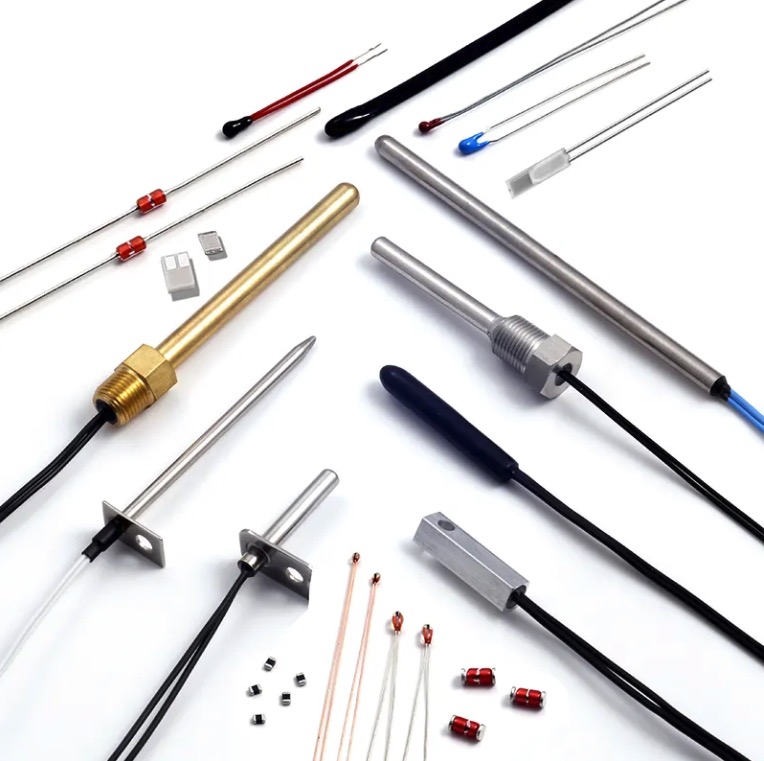Introduction: Temperature Sensors: Precision in Measurement and Control
Temperature Sensors: Temperature sensors are pivotal instruments utilized across industries for detecting and quantifying temperature changes with remarkable accuracy. Their versatility and reliability make them indispensable in numerous applications.
Applications: Temperature sensors find extensive application across diverse sectors, including manufacturing, healthcare, environmental monitoring, and scientific research. In manufacturing, they ensure product quality by monitoring and controlling temperature during various production processes. In healthcare, temperature sensors aid in diagnostics, patient monitoring, and laboratory procedures. Environmental monitoring relies on temperature sensors for weather forecasting, climate research, and ecological studies. Research endeavors benefit from temperature sensors in experiments requiring precise temperature control and measurement.
Detection: Temperature sensors detect temperature variations in different mediums, from gases and liquids to solids. They utilize various principles such as resistance, thermoelectric effects, and infrared radiation to convert temperature changes into electrical signals. These signals are then processed to provide accurate temperature readings, enabling real-time monitoring and analysis.
Usage: Temperature sensors are employed in a myriad of ways to optimize processes and ensure safety. In industrial settings, they regulate and maintain optimal temperatures in equipment, ensuring efficient operation and preventing overheating. HVAC systems rely on temperature sensors to adjust heating and cooling levels, maintaining comfortable indoor environments. Food industry utilizes temperature sensors to monitor storage and processing conditions, safeguarding against contamination and spoilage. In medical applications, temperature sensors enable non-invasive monitoring of body temperature, aiding in diagnostics and patient care.
Thermal Sensors and Thermostat Sensors: Thermal sensors, including thermostat sensors, are specialized temperature sensors designed for specific applications. Thermostat sensors regulate heating and cooling systems in homes, offices, and vehicles, maintaining desired temperatures for comfort and energy efficiency. Thermal sensors are also utilized in electronic devices to prevent overheating by monitoring component temperatures and triggering cooling mechanisms when necessary.
Temperature Types: Temperature sensors detect various types of temperature, including ambient temperature, surface temperature, liquid temperature, and internal temperature. Each type serves distinct purposes, from monitoring environmental conditions to ensuring the safety and efficiency of mechanical systems.
Conclusion: Temperature sensors play a pivotal role in modern technology, offering precision measurement and control across a wide range of applications. Their versatility, accuracy, and reliability make them indispensable tools for ensuring quality, safety, and efficiency in diverse industries and settings. Understanding their diverse applications and functions is essential for leveraging their full potential in optimizing processes and enhancing outcomes.





